






The Dawn Rehab
Verified Center
This provider's information has been quality-checked by Recovery.com's Research Team for accuracy and completeness, including center verification through appropriate third-party organizations.
Treatment Focus
This center treats substance use disorders and mental health conditions. You'll receive individualized care catered to your unique situation and diagnosis, learn practical skills for recovery, and make new connections in a restorative environment.
Primary Level of Care
Offering intensive care with 24/7 monitoring, residential treatment is typically 30 days and can cover multiple levels of care. Length can range from 14 to 90 days typically.
Treatment Focus
This center treats substance use disorders and mental health conditions. You'll receive individualized care catered to your unique situation and diagnosis, learn practical skills for recovery, and make new connections in a restorative environment.
Primary Level of Care
Offering intensive care with 24/7 monitoring, residential treatment is typically 30 days and can cover multiple levels of care. Length can range from 14 to 90 days typically.
Provider's Policy
The Dawn works with several major insurance providers–if clients have an international plan, they may be eligible to claim for coverage from Cigna, Aetna, United Healthcare, and Bupa International. US citizens on the Federal Employees Programme may also receive coverage from Blue Cross Blue Shield.
The Dawn Rehab
The Dawn Rehab
About The Dawn Rehab
The Dawn Wellness Centre and Rehab Thailand is one of Asia’s leading wellness treatment centres, set within a peaceful riverside sanctuary. The Dawn is currently the only residential treatment centre in Asia with international accreditation by the Commission on Accreditation of Rehabilitation Facilities (CARF).
Progressive Treatment Methods
The Dawn offers comprehensive treatment programmes for substance abuse and mental health disorders such as depression, anxiety, trauma and PTSD, using their innovative treatment roadmap, which ensures a holistic and personalised approach to recovery.
Treatment at The Dawn integrates a variety of evidence-based therapies including cognitive behavioural therapy (CBT), trauma-focused cognitive behavioural therapy (TF-CBT), and dialectical behaviour therapy (DBT). Additionally, their wellness therapies incorporate activities such as yoga, meditation, massage therapy, and physical exercise, addressing both the psychological and physical aspects of addiction and mental health disorders. Their comprehensive approach provides clients with the tools needed for sustainable recovery and overall well-being.
Holistic, Trauma-Incorporating Approach
The Dawn’s holistic treatment approach addresses all factors contributing to clients’ current struggles, including underlying issues, past experiences, relationships, living environment, and their family dynamics. The Dawn specialises in treating unresolved trauma, an issue often underpinning addiction and mental illness.
A Boutique Rehab Where Big Changes Occur
The Dawn offers a warm, welcoming environment. Their staff are highly attuned to the individual needs of each client, looking not only at the issue that brings them to The Dawn, but who they are and their life as a whole. The Dawn’s multidisciplinary team of Western-trained therapists is fully versed in the most current treatment techniques, and with a low client-to-staff ratio, they’re able to focus their full attention on what works best for each client. A 24-hour on-site nursing team supports clients during detox and their residential care, ensuring safety and comfort.
The Dawn’s Life-Changing Mental Health Retreat in Thailand
The Dawn has a dedicated mental health program that is separate from their addiction program, for those struggling with mental health issues not related to addiction. For co-occurring disorders, The Dawn can move clients seamlessly between the two programs. They also offer transcranial magnetic stimulation (TMS) therapy for medication-resistant conditions, an FDA approved technology.
The Dawn offers an Addiction Relapse Warranty policy. It ensures that anyone who completes 12 weeks of treatment for drug or alcohol addiction can come back for an additional 28 days of residential treatment, at no additional cost, if they relapse within one year.

Highlights from the Center
Highlights
These highlights are provided by and paid for by the center.
Nature Lovers
Residential Cabins
Addiction Recovery
Center Overview
Treatment Focus
This center treats substance use disorders and mental health conditions. You'll receive individualized care catered to your unique situation and diagnosis, learn practical skills for recovery, and make new connections in a restorative environment.
CARF Accredited
CARF stands for the Commission on Accreditation of Rehabilitation Facilities. It's an independent, non-profit organization that provides accreditation services for a variety of healthcare services. To be accredited means that the program meets their standards for quality, effectiveness, and person-centered care.
Insurance Accepted
Pricing and Program Length
Estimated Center Costs
The cost listed here ($14,500/28 days), is an estimate of program cost. Center price can vary based on program and length of stay. Contact the center for more information. Recovery.com strives for price transparency so you can make an informed decision.
Luxury rehab centers offer a unique blend of luxurious amenities and high-quality treatment. From private suites to gourmet dining, personal trainers to spa treatments, these facilities provide a high level of comfort and discretion.

Meet Your Care Team

Helen Wells
Psychotherapist (PACFA)
Post Graduate in Relationship Counselling, Bachelor of Counselling, Certified Trauma Professional

Robert Everitt
Senior Psychotherapist (BABCP)
MSc in Counselling Psychology Trauma & EMDR specialist
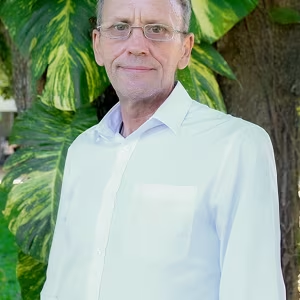
Alan Wood
Senior Psychotherapist (FDAP)
Masters in Counselling and Psychotherapy Practice

Alexandria Barley
Psychotherapist (IC&RC UK Europe)
Degree in Psychology in Counselling and Communications
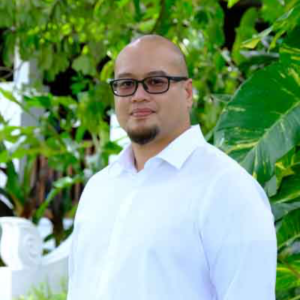
Don Paolo Veneracion
Psychotherapist
Masters in Mental Health and Trauma Counselling, CRC, ICAP I, CSAT III
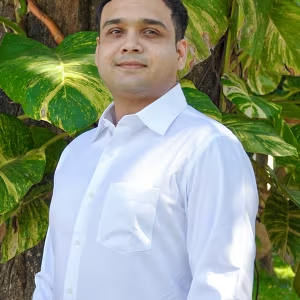
Mitch Khine Win
Psychotherapist (BPS)
Degree in Psychology, EMDR specialist
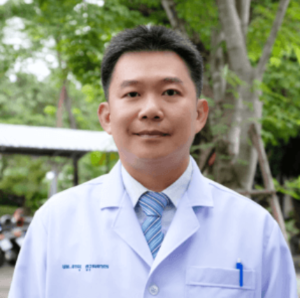
Dr. Panu Khuwuthyakorn
Consultant Psychiatrist

Jang Chumpoosri
Senior Nurse
Certified TMS Specialist
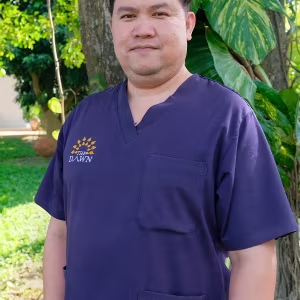
Boy Pimvapee
Senior Nurse
Certified TMS Specialist
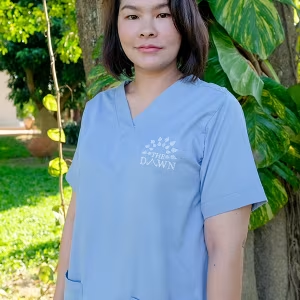
May Kawinta
Senior Medical Coordinator
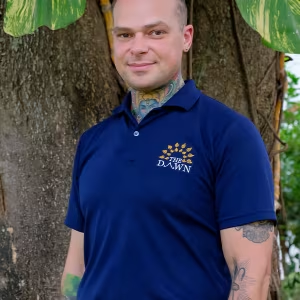
David Hamell
Assistant Manager - Client Support
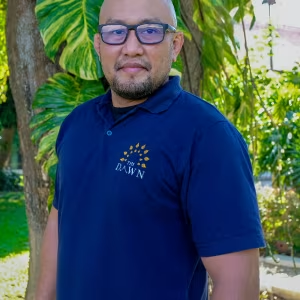
Jayvee Aquino
Senior Client Support

Pang Bunlengpradit
Senior Client Support
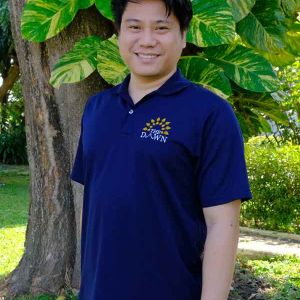
Top Woraruethaiwong
Senior Client Support

Mary Asad-Dehghan
Client Support Administrator

Nora Linn
Client Support

Moo-ham Suriyot
Client Support

Pakping Meesri
Junior Client Support
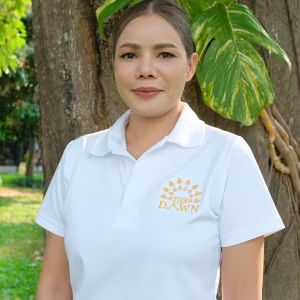
Nissa Jumnafai
Holistic Coach

Ya Thumkham
Recreation & Fitness Supervisor
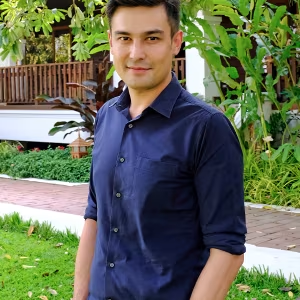
Markus Wiedenmann
Assistant Admissions Director
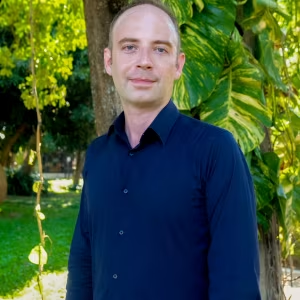
Vincent Leutwiler
Admissions Manager
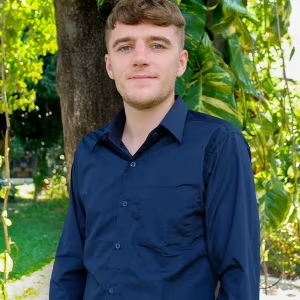
Alex Holland
Admissions Manager

Noi Khueanpate
Admissions Coordinator
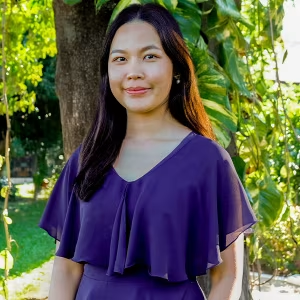
Mod Moonsomping
Admissions Coordinator




Levels of Care






Your Care Options
Specializations
Anxiety
Anxiety is a common mental health condition that can include excessive worry, panic attacks, physical tension, and increased blood pressure.
Cocaine
Cocaine is a stimulant with euphoric effects. Agitation, muscle ticks, psychosis, and heart issues are common symptoms of cocaine abuse.
Depression
Symptoms of depression may include fatigue, a sense of numbness, and loss of interest in activities. This condition can range from mild to severe.
Gambling
Excessive, repetitive gambling causes financial and interpersonal problems. This addiction can interfere with work, friendships, and familial relationships.
Trauma
Some traumatic events are so disturbing that they cause long-term mental health problems. Those ongoing issues can also be referred to as "trauma."
Who We Treat
Approaches
Evidence-Based
A combination of scientifically rooted therapies and treatments make up evidence-based care, defined by their measured and proven results.
Holistic
A non-medicinal, wellness-focused approach that aims to align the mind, body, and spirit for deep and lasting healing.
Individual Treatment
Individual care meets the needs of each patient, using personalized treatment to provide them the most relevant care and greatest chance of success.
Wellness
Wellness philosophies focus on the physical, mental, and spiritual wellness of each patient, helping them restore purpose with natural remedies.
Therapies
1-on-1 Counseling
Patient and therapist meet 1-on-1 to work through difficult emotions and behavioral challenges in a personal, private setting.
Meditation & Mindfulness
A practiced state of mind that brings patients to the present. It allows them to become fully aware of themselves, their feelings, and the present moment.
Art Therapy
Visual art invites patients to examine the emotions within their work, focusing on the process of creativity and its gentle therapeutic power.
Experiential Therapy
With this approach, patients heal by doing. Therapists help patients process difficult emotions to speak, using guided activities like art or dance.
Eye Movement Therapy (EMDR)
Lateral, guided eye movements help reduce the emotional reactions of retelling and reprocessing trauma, allowing intense feelings to dissipate.
Medication-Assisted Treatment
Combined with behavioral therapy, prescribed medications can enhance treatment by relieving withdrawal symptoms and focus patients on their recovery.
Mindfulness-Based Cognitive Therapy
MBCT combines mindfulness practices—like meditation—with cognitive therapy techniques to help patients work through negative thought patterns.
Conditions We Treat
Pornography Addiction
A person with a porn addiction is emotionally dependent on pornography to the point that it interferes with their daily life and relationships.
Personality Disorders
Personality disorders destabilize the way a person thinks, feels, and behaves. If untreated, they can undermine relationships and lead to severe distress.
ADHD, ADD
ADHD is a common mental health condition caused by dopamine imbalance. Common symptoms include inattention, hyperactivitiy, and impulsivity.
Anger
Although anger itself isn't a disorder, it can get out of hand. If this feeling interferes with your relationships and daily functioning, treatment can help.
Anxiety
Anxiety is a common mental health condition that can include excessive worry, panic attacks, physical tension, and increased blood pressure.
Bipolar
This mental health condition is characterized by extreme mood swings between depression, mania, and remission.
Burnout
Burnout entails mental and physical exhaustion, and leads to a severe lack of fulfillment. This condition is often caused by overwork.
Codependency
Codependency is a pattern of emotional dependence and controlling behavior. It's most common among people with addicted loved ones.
Depression
Symptoms of depression may include fatigue, a sense of numbness, and loss of interest in activities. This condition can range from mild to severe.
Substances We Treat
Alcohol
Using alcohol as a coping mechanism, or drinking excessively throughout the week, signals an alcohol use disorder.
Benzodiazepines
Benzodiazepines are prescribed to treat anxiety and sleep issues. They are highly habit forming, and their abuse can cause mood changes and poor judgement.
Chronic Relapse
Consistent relapse occurs repeatedly, after partial recovery from addiction. This condition requires long-term treatment.
Co-Occurring Disorders
A person with multiple mental health diagnoses, such as addiction and depression, has co-occurring disorders also called dual diagnosis.
Cocaine
Cocaine is a stimulant with euphoric effects. Agitation, muscle ticks, psychosis, and heart issues are common symptoms of cocaine abuse.
Drug Addiction
Drug addiction is the excessive and repetitive use of substances, despite harmful consequences to a person's life, health, and relationships.
Ecstasy
Ecstasy is a stimulant that causes intense euphoria and heightened awareness. Abuse of this drug can trigger depression, insomnia, and memory problems.
Heroin
Heroin is a highly addictive and illegal opioid. It can cause insomnia, collapsed veins, heart issues, and additional mental health issues.
Languages
Aftercare
Care Designed for Your Needs
Personal Amenities
Amenities
Special Considerations
Flexible technology policies
Centers with flexible technology policies allow professionals to stay in touch with work and give patients a greater sense of connection and normalcy.
Activities
Yoga
Yoga is both a physical and spiritual practice. It includes a flow of movement, breathing techniques, and meditation.
Off-Site Activities
Yoga
Yoga is both a physical and spiritual practice. It includes a flow of movement, breathing techniques, and meditation.
Off-Site Amenities
What people are saying
Treatment
4.2
Accommodations
4.2
Food & Nutrition
4.2
Value
4.1
Pros
- Treated With Respect (8)
- Friendly & Competent Staff (7)
- Beautiful Location (6)
- Confidential (6)
Cons
- Poor Internet Connection (3)
- Shallow Post-Treatment Planning (2)
- Not Enough Time With Therapist (2)
- Difficult to Work With (2)
Lisa Tongoulidis
Treatment in 2021 • (90 days) • Reviewed 01/08/26
Loved One of a Former Client
•Australia
The Dawn Rehab
KR
Treatment in 2022 • (60 days) • Reviewed 07/20/22
Former Client
•United Kingdom
The Dawn Rehab
A.P.
Treatment in 2022 • (90 days) • Reviewed 07/01/22
Former Client
•Research and Development
•Asia
The Dawn Rehab
PW
Treatment in 2022 • (60 days) • Reviewed 09/19/22
Former Client
•Labourer
The Dawn Rehab
Michael
Treatment in 2022 • (30 days) • Reviewed 11/29/22
Former Client
•Business owner
•Japan/USA
The Dawn Rehab






